Members
Faculty
 Lynn Hlatky, PhD.
Director.
Lynn Hlatky, PhD.
Director.Lynn Hlatky is the founding director of the Center of Cancer Systems Biology. Prior to founding the Center, she was at Dana-Farber Cancer Institute and in the Department of Radiation Oncology at Harvard Medical School. The mission of the Center of Cancer Systems Biology (CCSB) is based on the appreciation that carcinogenesis evolves at multiple levels ranging from molecular signalings to cellular and tissue interactions, and that only by their concerted study can the entire process be understood and translated into advances in clinical treatment and the development of novel therapies. Accordingly, the CCSB incorporates researchers with expertise in clinical oncology, cancer biology, molecular biology, radiobiology, bioengineering, mathematics, physics and engineering, chemistry, and computational biology.
Research interests:
- Carcinogenesis and tumor growth dynamics
- Radiobiology
- Translational studies on microenvironmental influence
- DNA damage and repair
- Tumor angiogenesis
- Tumor-cell fusion
Mail: hlatky [at] cancer-systems-biology.org
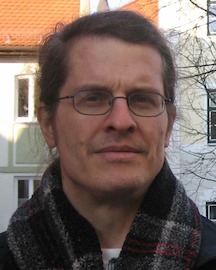 Philip Hahnfeldt, PhD.
Senior Investigator.
Philip Hahnfeldt, PhD.
Senior Investigator.
Phil Hahnfeldt joined the CCSB from the Dana-Faber Cancer
Institute and Harvard Medical School. He is an MIT-trained
mathematician who has specialized in cancer systems analysis. He
directs a project under the Center's NSCOR Program to form
composite models of carcinogenesis risk incorporating the
biological and mathematical studies of the other collaborators.
Research interests:
- Cancer growth dynamics
- Radiotherapeutic and chemotherapeutic dosing
- DNA damage and repair
- Tumor angiogenesis modeling
- Gene interaction networks
Mail: hahnfeldt [at] cancer-systems-biology.org
 Yun Wang, MD, PhD.
Senior Investigator.
Yun Wang, MD, PhD.
Senior Investigator.
Yun Wang, a Principal Investigator of Neurology Research, joined the CCSB in 2013. She was
trained at Weizmann Institute of Science in Israel and at Yale University. She currently participates in the Human Brain Project (HBP), one of the two FET (Future Emerging Technology) flagship projects in Europe. Her research is focusing on the functional and structural neuron-microcircuitry of the cortex under normal and disease conditions.
Research interests:
- Multi-neuron patch-clamp recording of single neurons and synaptic connections
- 3D-computer reconstruction of recorded neurons and synaptic connections
- Quantitative analyses and classification of cortical neurons and synapses
- Radiation influences on neurons and synapses
- Morphological, electrophysiological, and synaptic changes of cortical neurons induced under disease conditions such as Alzheimer's disease (AD)
 Afshin Beheshti, PhD.
Associate Investigator.
Afshin Beheshti, PhD.
Associate Investigator.Research Assistant Professor of Medicine, TUSM.
Afshin Beheshti joined the CCSB in 2006 from the Forsyth Institute where he worked on oral bacteria for three years. He obtained his PhD in Biophysics from Florida State University on ‘Modeling DNA Behavior in Gel Networks’ in 2002.
Research interests:
- Aging effects on carcinogenesis
- Radiation effects on tumor progression and initiation
- HZE radiation in tumors and tumor microenvironment with and without host aging
- Development aspect of carcinogenesis
- The process of initiation and progression of tumors using both in vitro and in vivo models
- Tumor–Stroma cell fusion
- Cell–cell interactions
- Differential X-ray tomography imaging on tumors from both clinical samples and murine samples
- Normal stem and cancer stem cells
- Double Strand Breakage/Repair in tumor populations and in the tumor microenvironment
Mail: afshin.beheshti [at] tufts.edu or afshin [at] cancer-systems-biology.org
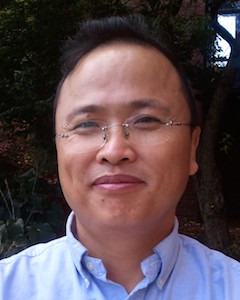 Dohoon Kim, PhD.
Associate Investigator.
Dohoon Kim, PhD.
Associate Investigator.
Research Assistant Professor of Medicine, Department of Integrative
Physiology and Pathobiology, TUSM.
Dohoon Kim joined the CCSB from McLean Hospital and Harvard
Medical School in 2013. He was trained and completed his stem cell studies at
the Stem Cell Center of Kyoto University, Joslin Diabetes Center, and
McLean Hospital. His area of expertise is in stem cell biology, such
as embryonic stem cells (hESC), induced pluripotent stem cells (iPSC),
and dedifferentiated multipotent stem cells (DMPSC).
Research interests:
- Human embryonic stem cells
- Induced pluripotent stem cells — disease-specific model
- Dedifferentiated multipotent stem cells — organ-specific model
- Cancer stem cells (CSC) — cancer-specific model
- Development of CSC-specific makers and drugs
Mail: dohoon.kim [at] tufts.edu or dohoon [at] cancer-systems-biology.org
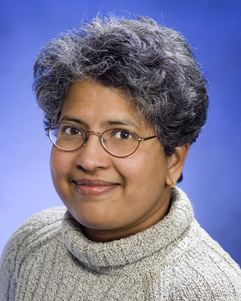 Mamta Naidu, PhD.
Associate Investigator.
Mamta Naidu, PhD.
Associate Investigator.
Mamta Naidu joined the CCSB in December 2012 from Stony Brook
University (Research Assistant Professor, 2011–2012) and
Brookhaven National Laboratory (Scientist, 2003–2012) in New
York. She received her PhD in Biochemistry from the University of
Bombay, India in 1997 where she worked at Bhabha Atomic Research
Centre (BARC) in Mumbai on the effects of
radio-detoxified lipopolysaccharide on immune cells. She completed
her postdoctoral training at North Shore University Hospital-NYU
School of Medicine (Manhasset, NY) in 1997–2003, exploring the
mechanisms that regulate autoimmune disorders, especially those which
unravel cell death mechanisms. Building on this interest in cellular
mechanisms, Mamta moved into the study of DNA damage repair and
dose-response of glial progenitor cells and glioma cell lines to low
and high LET radiation. She is the recipient of a NASA Space
Radiobiology Research award to study high LET radiation-induced DNA
repair mechanisms in Oligodendrocyte progenitor cells (OPC) in
vitro and in vivo.
Research interests:
- Radiobiology — in particular, high and low LET radiation
- Cellular, molecular, and structural mechanisms of DNA damage repair
- Glioma tumor biology — role of DNA damage repair and immune response
- Glial / Oligodendrocyte progenitor cells in vitro and in vivo, DNA damage repair and differentiation in response to single/fractionated dose of radiation
Mail: mamta [at] cancer-systems-biology.org
 Roberto Pola, MD, PhD.
Associate Investigator.
Roberto Pola, MD, PhD.
Associate Investigator.
Adjunct Assistant Professor of Medicine, TUSM.
Roberto Pola joined the CCSB in 2011 from a position as
Associate Investigator in the Center for Cardiovascular Research at St.
Elizabeth's Medical Center. In addition to his role in the CCSB, he also holds a faculty position at the
Catholic University School of Medicine in Rome, Italy, where he
obtained his MD in 1996 and his PhD in 2001. Dr. Pola's work focuses
on the molecular and cellular mechanisms of angiogenesis and tissue
regeneration. He has provided the first evidence that the embryonic
morphogen Sonic hedgehog (Shh) is a potent angiogenic agent in
post-natal life and may be used to induce therapeutic angiogenesis in
the setting of ischemia. He is also interested in the genetics of
cardiovascular diseases and collaborates with several centers in
Europe and around the world on GWAS on stroke and peripheral artery
disease.
Research interests:
- Molecular and cellular mechanisms of angiogenesis and vasculogenesis
- Stem cells and tissue regeneration
- Sonic hedgehog, angiogenesis, myogenesis, and tissue regeneration
- Genetics of cardiovascular diseases
Mail: roberto.pola [at] tufts.edu
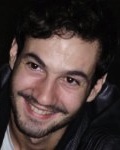 Sébastien Benzekry, PhD.
Sébastien Benzekry, PhD.
After obtaining his PhD in applied mathematics on the
mathematical and numerical analysis of a model for therapies in
metastatic cancer from the University of Provence in Marseille,
France, Sébastien Benzekry completed his postdoctoral training
at the CCSB in 2012. As of January 2013, Sébastien has joined the INRIA
MC2 team at INRIA Bordeaux-Sud Ouest, Institut de Mathématiques
de Bordeaux in France, as a Junior Researcher (CR2) where he continues his work in applied
mathematics to cancer research.
Research interests:
- Modeling of metastatic development and tumor-tumor interactions
- Modeling of the angiogenesic process
- Structured equations in population dynamics
- Scheduling optimization for anti-cancerous therapies
Mail: sebastien.benzekry [at] inria.fr or benzekry [at] phare.normalesup.org
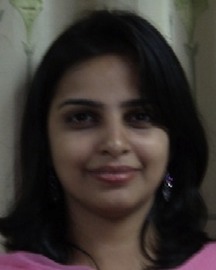 Swati Girdhani, PhD.
Swati Girdhani, PhD.
Swati Girdhani received her PhD in Radiation Biology from
the Indian Atomic Research Centre and completed postdoctoral training
at CCSB. Staying at the Center for a number of years, she furthered her work in
radiation studies, eventually advancing to the rank of Associate
Investigator. Since April 2014, Swati has joined Varian Medical
Systems in Palo Alto, California as a Senior Scientist in the Ginzton
Technology Center.
Research interests:
- Radiation biology
- DNA damage and repair
- Proton irradiation response
- Tumor response to anti-angiogenic therapy
Mail: swati.girdhani [at] varian.com
 J. Tyson McDonald, PhD.
J. Tyson McDonald, PhD.
Tyson McDonald joined the CCSB in 2009 as a post-doc from the University of
California, Los Angeles where he received his PhD in Radiation
Biology from the Biomedical Physics Program. His studies included
novel findings of transciptional regulation at chronic low dose and
dose-rates from primary human prostate fibroblast cell cultures. He is
currently a member of the Cancer Research Center at
Hampton University studying clinical-translational research of proton
radiation therapy.
Research interests:
- Differential effects of acute low dose compared to chronic low dose/low dose-rate exposure to ionizing radiation in normal human cells
- Long-term genetic and molecular effect of high dose ionizing radiation on surviving cells and proliferative progeny with an emphasis in glioblastoma multiforme brain tumors
- Application of genome-wide bioinformatics to elucidate conserved molecular responses in human health and disease
Mail: john.mcdonald [at] hamptonu.edu
 Rainer K. Sachs, PhD.
Rainer K. Sachs, PhD.
Ray Sachs is Adjunct Professor of Medicine at the CCSB and
Professor of Mathematics and Physics at the University of
California, Berkeley. He directs a project on quantitative modeling
of carcinogenesis dynamics under the Center's ICBP. This year he has
worked mainly on leukemia dynamics and on radiation modulation of
solid tumor dynamics.
Research interests:
- Modeling carcinogenesis due to ionizing radiation
- Quantitative models of chronic myeloid leukemia (CML)
- Radiation risk estimation for astronauts on extended missions
- Modeling second cancers after tumor radiotherapy
- Modeling radiation formation of chromosome aberrations
- Modeling large-scale geometry of chromatin during cell cycle interphase
Mail: sachs [at] math.berkeley.edu
Researchers
 Christine E. Briggs, PhD.
Assistant Investigator.
Christine E. Briggs, PhD.
Assistant Investigator.
Chris Briggs's interests are in applying
computational/statistical/bioinformatics tools and genomics
technologies to dissect the roles of epigenetic factors, genomic
instability and gene expression changes underlying dysregulation of
molecular pathways leading to cancer.
Research interests:
- Defining microRNA profiles and targets involved in cancer and response to irradiation
- Defining methylation profiles associated with dysregulation of genes/molecular pathways involved in cancer and response to irradiation
- Applying aCGH, methylation/SNP-microarray and NGS technologies to identify regions of genomic instability associated with cancer and response to irradiation
Mail: christine [at] cancer-systems-biology.org
 Kathleen Wilkie, PhD.
Assistant Investigator.
Kathleen Wilkie, PhD.
Assistant Investigator.
Kathleen Wilkie joined the CCSB in 2011 from the University of Waterloo,
Canada, where she received her PhD in Applied Mathematics from the
Faculty of Mathematics. In her thesis she used continuum mechanics to
develop both poroelastic and viscoelastic descriptions of the brain to
model hydrocephalus (a neurological condition) and examine several
medical hypotheses for its pathogenesis. Here at the CCSB, Kathleen
uses differential equations to study cancer-immune interactions in
tumor-promoting inflammatory microenvironments from a systems biology
perspective.
Research interests:
- Cancer immunology: immunoediting, immunoevasion, and the link between cancer and inflammation
- Immune-induced tumor dormancy
- Theoretical developmental biology and the role of the immune system in homeostasis
- Heterogeneous cell populations in cancer progression
- Cell adhesion, mechanosensing, and the resulting effects on mechanical properties of living tissues
- Growth, development, and aging effects on biological tissues
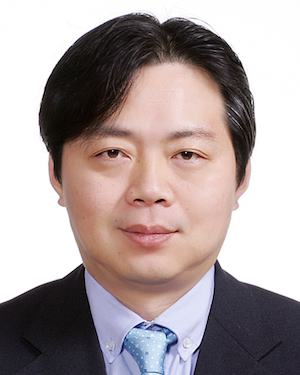 Sungbum Cho, MD, PhD.
Postdoctoral Fellow.
Sungbum Cho, MD, PhD.
Postdoctoral Fellow.
Sungbum Cho joined the CCSB from Chonnam National University
Hospital of South Korea in March 2014. He received his
MD (Gastroenterology and Hepatology of Internal Medicine) and PhD
from CNUMS, South Korea. His interests focus on cancer stem cell
biology and clinical application.
Research interests:
- Induced pluripotent stem cells
- Cancer stem cells (CSC)
- Development of CSC — specific markers and drugs
Mail: chosb4981 [at] gmail.com
 Xuefeng Gao, PhD.
Postdoctoral Fellow.
Xuefeng Gao, PhD.
Postdoctoral Fellow.
Xuefeng (Ryan) Gao joined the CCSB in November 2011 from the
University College Cork, Ireland, where he received his PhD on
'Multi-scale Modeling and Simulation of Tumor Development and Cancer
Gene Therapies' in 2011.
Research interests:
- Modeling tumor growth, tumor angiogenesis, and invasion
- Darwin evolution of cancer cells: the emergence and distribution of cancer cell phenotypes
- Modeling cancer gene therapies (e.g., virotherapy, bacterial therapy)
- Dynamics of multi-cellular systems
- Cell-centered multi-scale modeling and simulation
- Biomedical visualizations, animations and movies
- Interactive technologies
 Clare Lamont.
Research Coordinator.
Clare Lamont.
Research Coordinator.
ICBP Education & Outreach Director.
Clare Lamont joined the CCSB in 2006. In her role as Research
Coordinator, she works closely with CCSB scientists to provide
hands-on experimental support as well as manages administrative and
policy requirements for on-going research projects. In addition, she
creates illustrations and scientific graphics for grant submissions,
lectures, and manuscripts. She also directs the outreach initiative
for our center's ICBP.
Research interests:
- Carcinogenesis models
- Space and low-dose radiation effects
- Digital media and information graphics
Mail: lamont [at] cancer-systems-biology.org
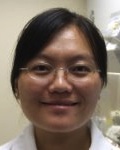 Lili Ma, MD, MS.
Research Associate.
Lili Ma, MD, MS.
Research Associate.
Lili Ma joined the CCSB in August 2007 from Shanghai Institutes
of Biological Sciences (SIBS), China, where she worked on
immulogical studies. She received her MD in Clinical Medicine from
Changzhi Medical College, China and went on to pursue
further studies, earning an MS in Immunology from Sochow University, Suzhou, China. Her current interests focus on cell-cell interaction and
prostate carcinogenesis.
Research interests:
- Tumor dormancy and angiogenesis
- Epigenetics (microRNA and methylation) in cancer
- Exosomes/microvesicles
- Prostate carcinogenesis and cancer evolution
 Maoyun Sun, MD, PhD.
Research Associate.
Maoyun Sun, MD, PhD.
Research Associate.
Maoyun Sun joined the CCSB in 2009. He received his PhD in
Biochemistry and Molecular Biology from Fudan University Shanghai
Medical College, China in 2006.
Research interests:
- Tumor angiogenesis
- Epithelial-mesenchymal transition
- Tumor molecular biology
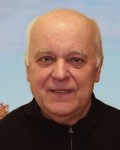 Janusz Weremowicz.
Animal Research Manager.
Janusz Weremowicz.
Animal Research Manager.
Foreign graduated DVM.
LAT-G technologist.
Janusz Weremowicz's field of interest is microsurgery and
care of our animal colony.
Mail: janusz [at] cancer-systems-biology.org
Technicians
 Michael Peluso.
Laboratory Manager.
Michael Peluso.
Laboratory Manager.
B.S. Biological Sciences – Cell and Developmental Biology, University of Rochester
- Beheshti A, Wage J, McDonald JT, Lamont C, Peluso M,
Hahnfeldt P, Hlatky L. Tumor-host signaling interaction reveals a
systemic, age-dependent splenic immune influence on tumor
development. Oncotarget. 2015 Nov 3;6(34):35419-32.
- Wage J, Ma L, Peluso M, Lamont C, Evens AM, Hahnfeldt P,
Hlatky L, Beheshti A. Proton irradiation impacts age-driven modulations
of cancer progression influenced by immune system transcriptome
modifications from splenic tissue. J Radiat Res. 2015
Sep;56(5):792-803. Epub 2015 Aug 7. PMCID: PMC4577010.
- Suresh Kumar MA, Peluso M, Chaudhary P, Dhawan J,
Beheshti A, Manickam K, Thapar U, Pena L, Natarajan M, Hlatky L, Demple B, Naidu M. Fractionated radiation exposure of rat spinal cords leads to
latent neuro-inflammation in brain, cognitive deficits, and
alterations in Apurinic Endonuclease 1. PLoS
One. 2015 Jul 24;10(7):e0133016. PMCID: PMC4514622.
- Beheshti A, Benzekry S, McDonald JT, Ma L, Peluso M, Hahnfeldt P,
Hlatky L. Host age is a systemic regulator of gene
expression impacting cancer progression. Cancer Res. 2015 Mar
15;75(6):1134-43. Epub 2015 Mar 2. PMCID: PMC4397972.
- Girdhani S, Lamont C, Peluso M, Sun M, Hlatky
L. 56Fe ion irradiation enhances angiogenesis and
other inter-cellular determinants of carcinogenesis risk. J
Radiat Res. 2014 Mar 1;55 Suppl 1:i124-i126. PMCID: PMC3941549.
- Beheshti A, Peluso M, Lamont C, Hahnfeldt P, Hlatky
L. Proton irradiation augments the suppression of tumor
progression observed with advanced age. Radiat Res. 2014
Mar;181(3):272-83. Epub 2014 Feb
25. PMCID: PMC4406472. COVER ARTICLE
- McDonald JT, Briggs C, Szelag H, Peluso M, Schneider D,
Perepletchikov A, Klement GL, Tuerk I, Hlatky L. Chronic low
dose-rate radiation down-regulates transcription related to
mitosis and chromosomal movement similar to acute high dose in
prostate cells. Int J Radiat Biol. 2014 Mar;90(3):231-40. Epub
2014 Jan 8.
- Beheshti A, Sachs RK, Peluso M, Rietman E, Hahnfeldt P, Hlatky L. Age and space irradiation modulate tumor progression: implications for carcinogenesis risk. Radiat Res. 2013 Feb;179(2):208-20. Epub 2013 Jan 4.
Mail: michael [at] cancer-systems-biology.org
 |
Marge. |
Administrators

|
Melissa Klumpar. Program Manager. Melissa Klumpar brings a broad administrative and program management background to the CCSB, which she joined in 2010. She has experience coordinating large, complex grant initiatives, such as the NCI Cancer Center Support Grant, at academic medical centers like the Tufts Cancer Center and the Dana-Farber/Harvard Cancer Center. As Program Manager for the CCSB, Melissa works with the institutional Research Office and with internal and external investigators to coordinate the research efforts of the Center. Mail: melissa [at] cancer-systems-biology.org |
| [top] | |
|
|
|
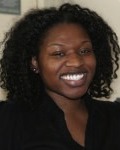
|
Cassie Enayo. Administrative Assistant. Mail: cassedra [at] cancer-systems-biology.org |
| [top] | |
Collaborators
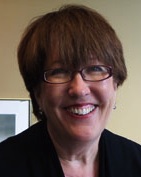
|
Mary Helen Barcellos-Hoff, PhD.
Professor of Radiation Oncology and Cell Biology, NYU Langone
Medical Center.
Research interests:
|
| [top] | |
|
|
|

|
Sylvain Costes, PhD. Staff Scientist, Lawrence Berkeley National Laboratory. Research interests:
|
| [top] | |
|
|
|

|
Shiva Kalinga, PhD. Project Leader, Department of Biological Engineering, Massachusetts Institute of Technology. Research interests:
|
| [top] | |
|
|
|

|
Jan Poleszczuk, PhD. College of Inter-faculty Individual Studies in Mathematics and Natural Sciences, University of Warsaw, Poland; Nalecz Institute of Biocybernetics and Biomedical Engineering, Polish Academy of Science, Warsaw, Poland Research interests:
|
|
[top] |
|
|
|
|

|
Tomas Radivoyevitch, PhD. Assistant Professor of Epidemiology and Biostatistics, Case Western Reserve University. Tomas Radivoyevitch's aim is to produce mathematical models of normal and malignant myelopoiesis. He is particularly interested in pharmacokinetic/pharmacodynamic models of responses of these systems to nucleoside analogs such as decitabine. Research interests:
|
| [top] | |
|
|
|

|
Douglas Schneider, MD. Associate Clinical Professor of Anatomic and Clinical Pathology, TUSM. Douglas Schneider is a pathologist at Steward St. Elizabeth's Medical Center and Tufts University School of Medicine. |
| [top] | |
|
|
|

|
Ingolf Tuerk, MD, PhD. Chief of Urology and Director of the Robotic Assisted Surgery Program, Steward St. Elizabeth's Medical Center. Professor of Urology, TUSM. Ingolf Tuerk is a world-renowned expert in laparoscopic and robotic urologic surgery and has pioneered several laparoscopic techniques including radical prostatectomy, radical and partial nephrectomy, right side donor nephrectomy, pyeloplasy and radical cystectomy with continent urinary diversion. Dr. Tuerk is working with CCSB on translational prostate cancer projects. Learn more about Dr. Tuerk |
| [top] | |
|
|
|

|
Zhina Zhi, MD, MS. Zhina Zhi is a graduate of Wenzhou Medical University, China, where she worked in neurophysiology. She received her MD and MS from China. As a visiting scholar/postdoc to the CCSB for one year, she worked in the lab of Dr. Yun Wang. She has worked on neuron microcircuits as a research assistant since September 2012 and her research interests focus on neurophysiology. She will continue her collaborations with the CCSB from China. |
| [top] | |
|
|
|

1933 – 2008 |
Judah Folkman, MD. Julia Dyckman Andrus Professor of Pediatric Surgery and Professor of Cell Biology, Harvard Medical School. In Memorium: On January 14, 2008 Judah Folkman died unexpectedly en route to a conference on angiogenesis. His passing is an immense loss to those who knew and worked with him, as well as to the advancement of science. We greatly miss his scientific insight, unbounded enthusiasm, and friendship. NOVA scienceNow video profile of Dr. Judah Folkman |
| [top] | |
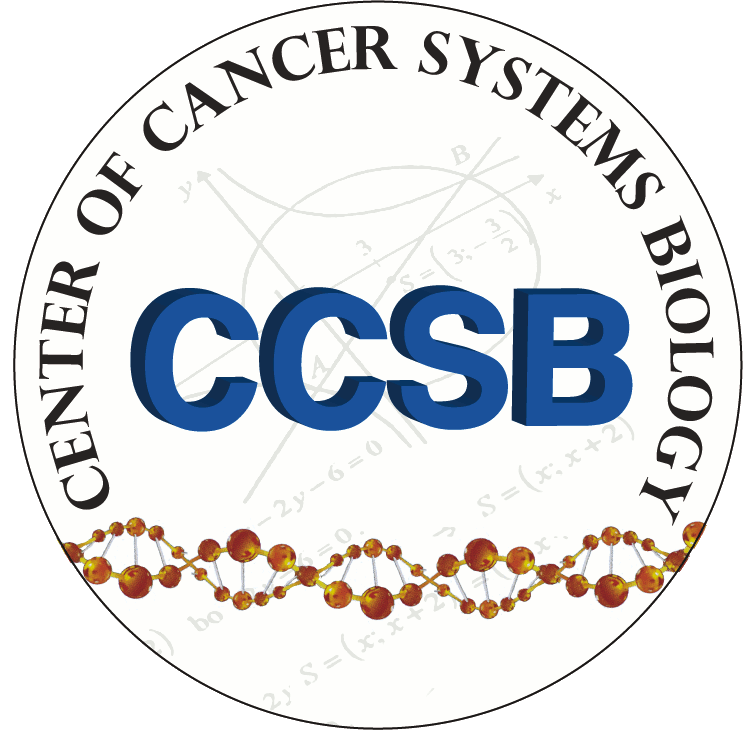 |
Click here to view CCSB alumni. |